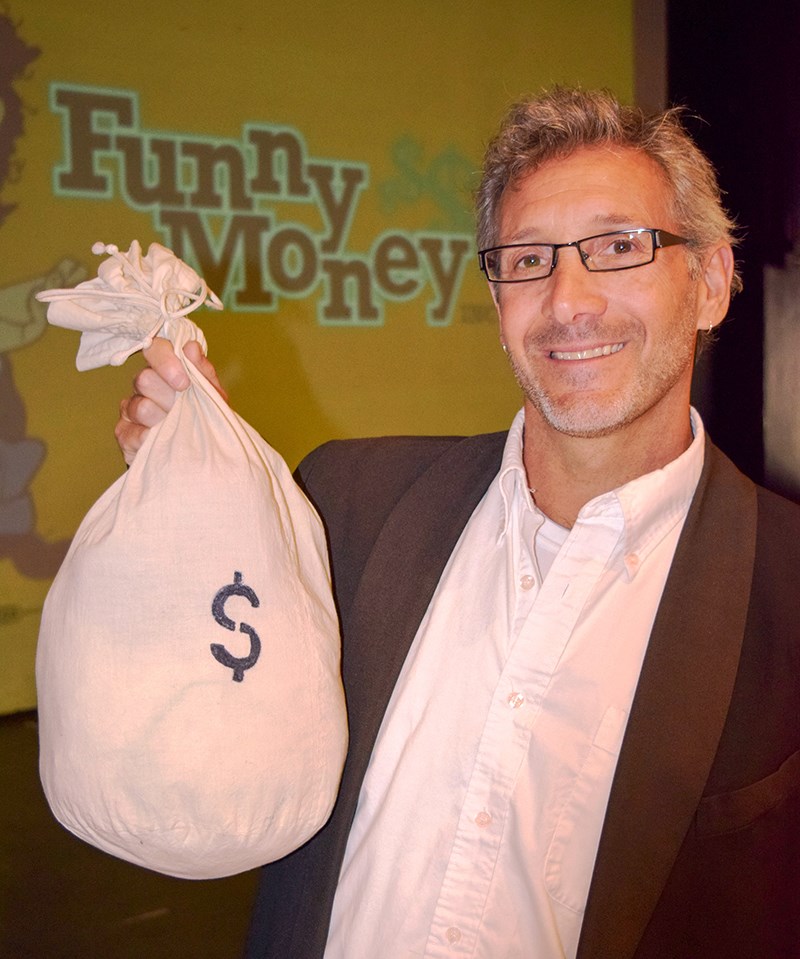Cathy Dobson
What's the biggest misconception teenagers have about money?
“They kinda think it grows on trees because the money they spend is mostly their parents’,” says Steve Levine, an educator and comedian who brought his travelling money management show to local high schools last week.
“Make some noise if you’re broke,” he urged about 450 Grade 11 and 12 students at Great Lakes Secondary School.
The auditorium erupted and dozens of hands shot into the air.
“Let’s see how broke you actually are,” Levine said, smiling.
“Have you ever had to roll change to pay for something?
“Who thinks Kraft Dinner is a food group? Who has bought gifts at the dollar store?
“Who has ever taken money out of their younger sister’s or brother’s piggy bank?”
That last one drew loud applause.
“The truth is, you people aren’t broke,” Levine informed the students. “North American teens spent $100 billion last year and $32 billion of that was on games and gaming devices alone.”
But the majority of that money was contributed by parents, because high school students generally live at home. Parents must have been chipping in because statistics also show North American teens earned only $5.6 billion last year.
That has got to change, said Levine, pointing out that the majority of senior students will be out of their parents’ homes shortly.
“You’ve got to slowly start to wean yourself off your parents.”
He used humour, lively competitions and promises of loonies, $5 bills and even a $50 grand prize to hold the audience.
Every year, Levine visits about 50 high schools with a one-hour show created Funny Money Inc., which bills itself as a FUNancial lecture for students.
The company fills a need, says Levine, because financial literacy is rarely taught in schools and many parents don’t talk to their kids about it.
His financial approach is built on three principals: Know your flow (budget); control what you owe (avoid debt); and invest some “dough.”
When only a smattering of students indicated they had credit cards, Levine recommended they get a student credit card that comes with a lower interest rate and lower spending limits.
“Pay it back in full as fast as you can,” he advised. Building a good credit rating will be critical later.
Students need to have credit cards for emergencies but should not ever have merchant credit cards or multiple bank cards, Levine said.
Teens may think they’re too young to invest, but it’s not true, he said. “Time is the most valuable investment tool you have.” Scrounging for small amounts to invest now will pay off down the road.
Great Lakes principal Paul Weirsma said Levine’s message helps students graduate with some financial knowledge.
Ontario’s curriculum incorporates financial literacy into every subject, Weirsma said. But teachers are often too swamped with core material to get to it.
The Funny Money high school program is supported in Ontario by the provincial government, the Ontario Chamber of Commerce and Meridian Credit Union.
Levine also took his show to Alexander Mackenzie Secondary School.
